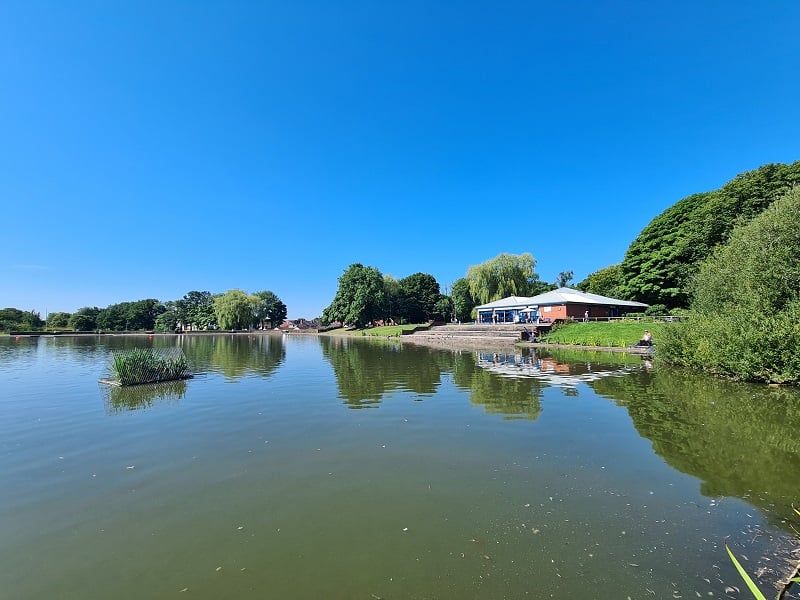News Extra ¦ Are you ready to beat the heat?
Are you ready to beat the heat?
Most of us welcome hot weather, but when it's too hot for too long, there are health risks. In England, there are on average 2000 heat related deaths every year. If hot weather hits this summer, make sure it does not harm you or anyone you know.
A heatwave can affect anyone, but the most vulnerable people are:
- older people – especially those over 75
- those who live on their own or in a care home
- people who have a serious or long-term illness – including heart or lung conditions, diabetes, kidney disease, Parkinson's disease or some mental health conditions
- those who may find it hard to keep cool – babies and the very young, the bed bound, those with drug or alcohol addictions or with Alzheimer's disease
- people who spend a lot of time outside or in hot places – those who live in a top floor flat, the homeless or those whose jobs are outside
- people with respiratory illnesses, as levels of air pollution are often worse during heatwaves
Plan Ahead to beat the Heat
Listen to the news to be aware of when a heatwave has been forecast and how long it is likely to last. This can help you plan to try to avoid situations where you could become dangerously hot:
- Plan your day - avoid being out in the sun during the hottest part of the day (around midday) keep extreme physical exertion for cooler parts of the day – for example, in the early morning or evening. Children should not take part in vigorous physical activity on very hot days, such as when temperatures are above 30°C.
- If you have to go out in the heat walk in the shade, apply sunscreen and wear a hat, sunglasses and light clothing. Remember to bring these when you go out, and always take a drink with you.
- Drink plenty of fluids and avoid alcohol. This will help prevent dehydration and help your body keep itself cool.
- Keep your home cool – use this checklist to see if your home or people you live with are likely to be more prone to the effects of hot weather, what you can do before and during hot weather to try to reduce overheating and where to get help.
During hot weather
- Go indoors or outdoors, whichever feels cooler. Avoid closed spaces, including stationary cars, which can get dangerously hot very quickly. Remember some people, especially babies, the young and the old may find it harder to stay cool and may not be able to move themselves to a cool place.
- Have a cool bath or shower. If you are going into open water to cool down, take care and follow safety advice signs.
- Keep curtains or blinds closed during the day on rooms that face the sun to keep indoor spaces cooler, and only open windows when the air outside is cooler than the air inside.
Watch out for signs of heat related illness
During hot weather keep an eye on children, the elderly and people with long-term health conditions because they're more at risk of heat exhaustion or heat stroke. If you or someone else feels unwell with a high temperature during hot weather, it may be heat exhaustion or heatstroke.
The signs of heat exhaustion include:
- a headache
- dizziness and confusion
- loss of appetite and feeling sick
- excessive sweating and pale, clammy skin
- cramps in the arms, legs and stomach
- fast breathing or pulse
- a high temperature of 38C or above
- being very thirsty
The symptoms are often the same in adults and children, although children may become floppy and sleepy. If someone is showing signs of heat exhaustion, they need to be cooled down.
Things you can do to cool someone down
If someone has heat exhaustion, follow these 4 steps:
- Move them to a cool place.
- Get them to lie down and raise their feet slightly.
- Get them to drink plenty of water. Sports or rehydration drinks are OK.
- Cool their skin – spray or sponge them with cool water and fan them. Cold packs around the armpits or neck are good, too.
Stay with them until they're better, they should start to cool down and feel better within 30 minutes.
Signs of heatstroke include:
- feeling unwell after 30 minutes of resting in a cool place and drinking plenty of water
- not sweating even while feeling too hot
- a high temperature of 40C or above
- fast breathing or shortness of breath
- feeling confused
- a fit (seizure)
- loss of consciousness
- not responsive
Heatstroke can be very serious if not treated quickly, and you should dial 999 if you think someone is affected by it.
Useful links:
GOV.UK: Heatwave Plan for England, includes a checklist and Beat the Heat with further information for households
NHS UK: How to cope in hot weather
Thank you to Bury Public Health for this article

